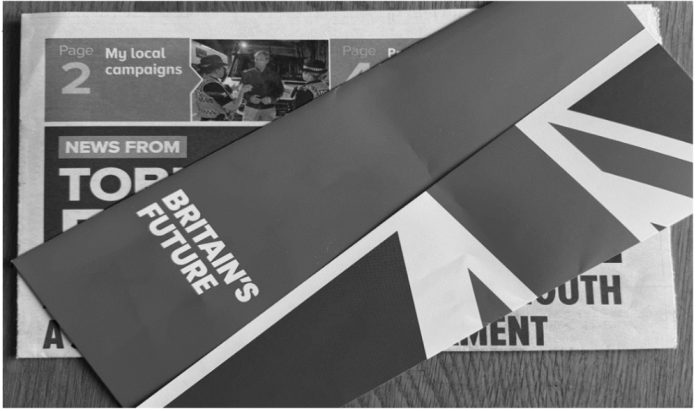The upcoming general election campaign in the UK looks to be the most cynical and personal we have seen as both major parties take the gloves off following a growing trend in British politics.
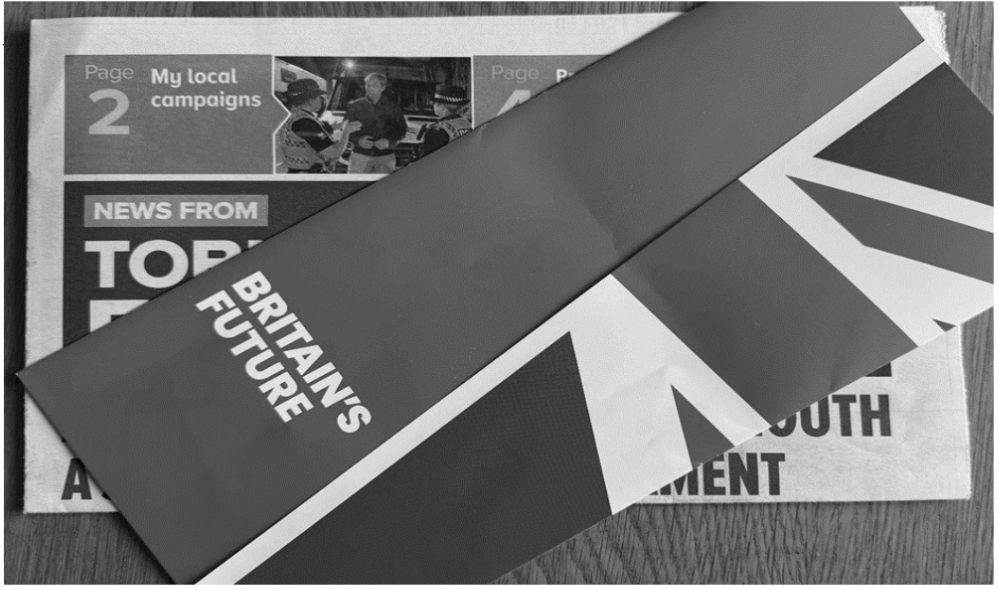
Image Source: Author
In April 2023, we saw the Labour Party release a campaign poster asking “Do you think adults convicted of sexually assaulting children should go to prison? Rishi Sunak doesn’t” in an attack against the Prime minister, drawing a personal link to Rishi Sunak.
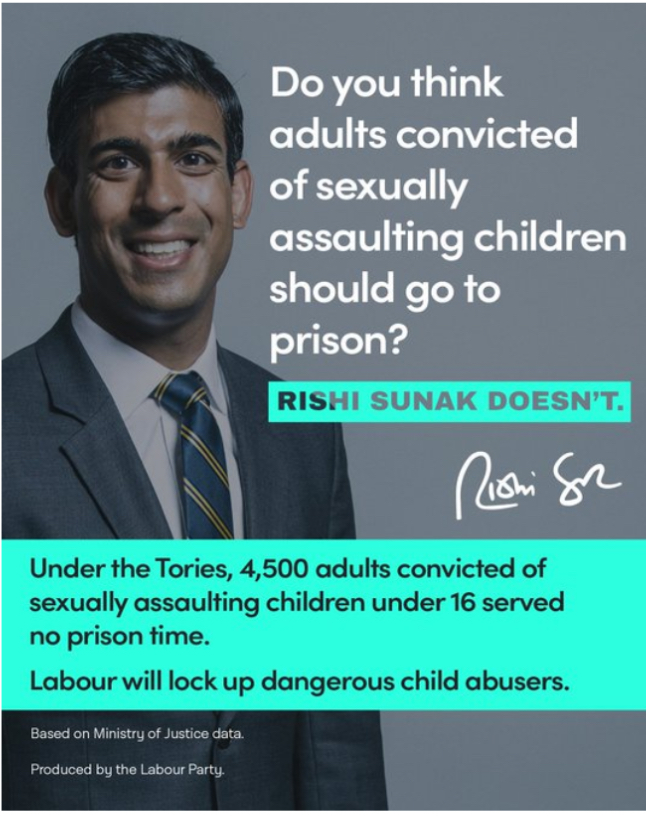
This Labour campaign post drew wide criticism, including from its own MPs, with then shadow culture secretary Lucy Powell MP refusing to endorse the advert multiple times in a BBC Breakfast interview, saying,
Image Source: The Labour Party 2023
Despite this criticism, Labour continued with the format of personal attacks. In September 2023, Labour launched a new poster asking, “Do you think your child’s school should be safe? Rishi Sunak Doesn’t” after it was found that over 100 schools had dangerous concrete that was at risk of collapse. Former Conservative leader, Sir Iain Duncan Smith said, “This is a disgrace; it’s typical of Labour” continuing that “The public recognises that these type of attack ads reduce politics”.
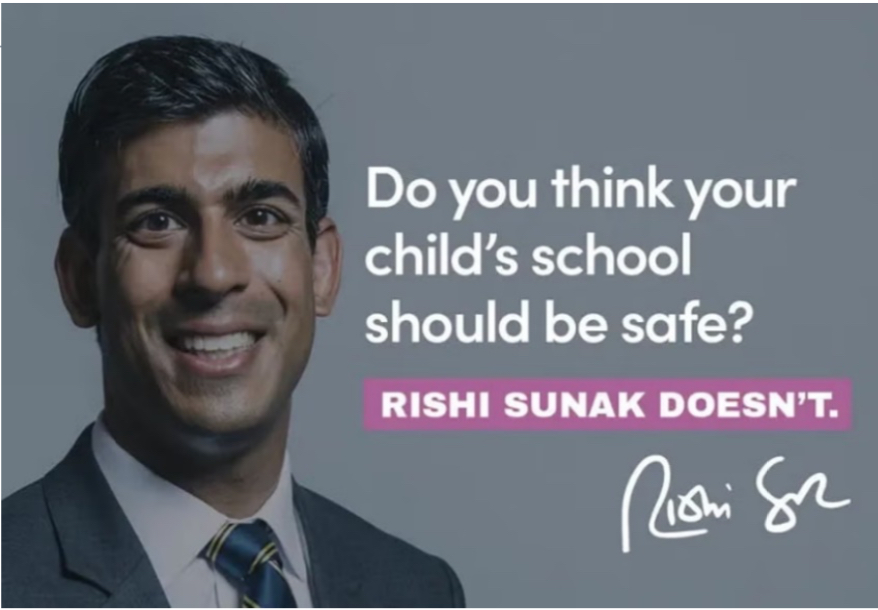
Rishi Sunak also drew sharp criticism for saying during a PMQs session in February that the leader of the opposition had broken his promise on defining a woman—a line that is frequently repeated—particularly because mother of murdered transgender teenager, Brianna Ghey, was due to be watching from the public gallery. Labour MP Ben Bradshaw tweeted, “Disgusting man, Rishi Sunak, making transphobic slurs at PMQs with Brianna Ghey’s mother in the gallery & dodging the chance to apologise” along with a video of the exchange. Charity Stonewall described Sunak’s words as “cheap, callous and crass,” but he refused to apologise in the aftermath.
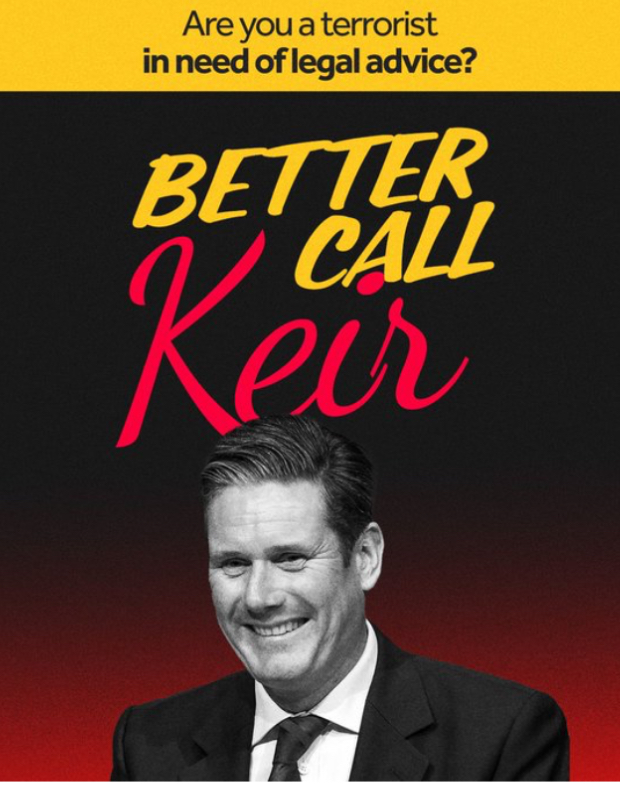
Research carried out on personal insults made during PMQs has shown that over the last 40 years there has been a dramatic increase in personalised attacks, especially by recent PMs and opposition leaders and that it is much more likely for national parties to wage these negative campaigns in comparison to local ones. What is clear is that this type of targeting of your opponent can have a detrimental effect on the election process, often, for example, leading to lower turnout.
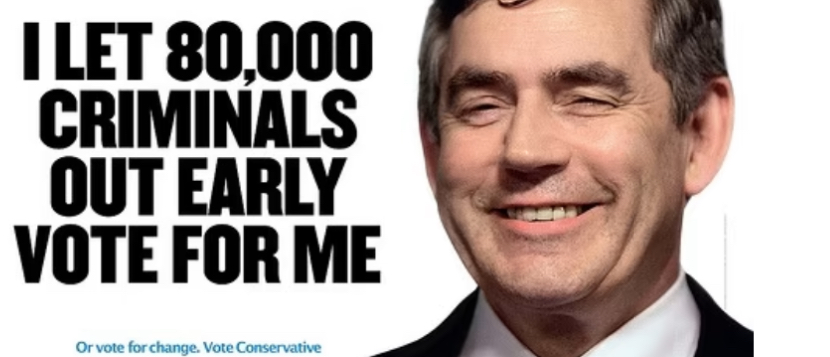
Image Source: Conservative Party 2010
This is not new to British politics, but it is on the rise. In the 2010 general election campaign, the Conservative Party put a poster on 800 billboards with a picture of then Labour PM, Gordon Brown, accompanied by the message “I let 80,000 criminals out early to vote for me,” a style today’s Labour campaign has certainly taken inspiration from. The 2016 campaign also became highly personalised with then Conservative PM, David Cameron, telling Jeremy Corbyn, “I think she’d look across the dispatch box and she’d say: put on a proper suit, do up your tie, and sing the national anthem” in response to a MP referencing Cameron’s mother having signed a petition opposing cuts to child services.
Underneath the increasing personal attacks and aggression between the parties is a worry among MPs that this rhetoric is leading to an increase in danger those MPs face, especially when highly contentious issues are being discussed. MP Tan Dhesi has spoken of death threats and protests at his constituency surgeries that he has faced since October, leading to the need for a police presence now being required.
The murders of Jo Cox MP and Sir David Amess MP provide reminders to MPs worried about their safety. In an interview with the Daily Mail, MP and Justice Minister Mike Freer said the threats and alleged attack on his constituency office had become too much and that he would be standing down. In response to this, Conservative MP Virginia Crosbie has asked for all candidates running for the seat to have an election “free of personal attacks and unpleasantness, especially on social media.”.
The Institute for Government explains that our system leaves judgments on where to draw the line on divisive language to “political parties in a year when their decisions are primarily governed by self-interest.” And that we face “an increasingly polarised debate in which political parties are tempted to permit the language of division for political advantage.” They continue that “the implications of these statements for standards of political discourse, for the conduct of our politics, and for the politicians facing the real world are deeply alarming.”.
What is clear is that it shows no signs of abating.
If you like our content, join us in helping to bring reality and decency back by SUBSCRIBING to our Youtube channel: https://www.youtube.com/channel/UCQ1Ll1ylCg8U19AhNl-NoTg AND SUPPORTING US where you can: Award Winning Independent Citizen Media Needs Your Help. PLEASE SUPPORT US FOR JUST £2 A MONTH https://dorseteye.com/donate/

